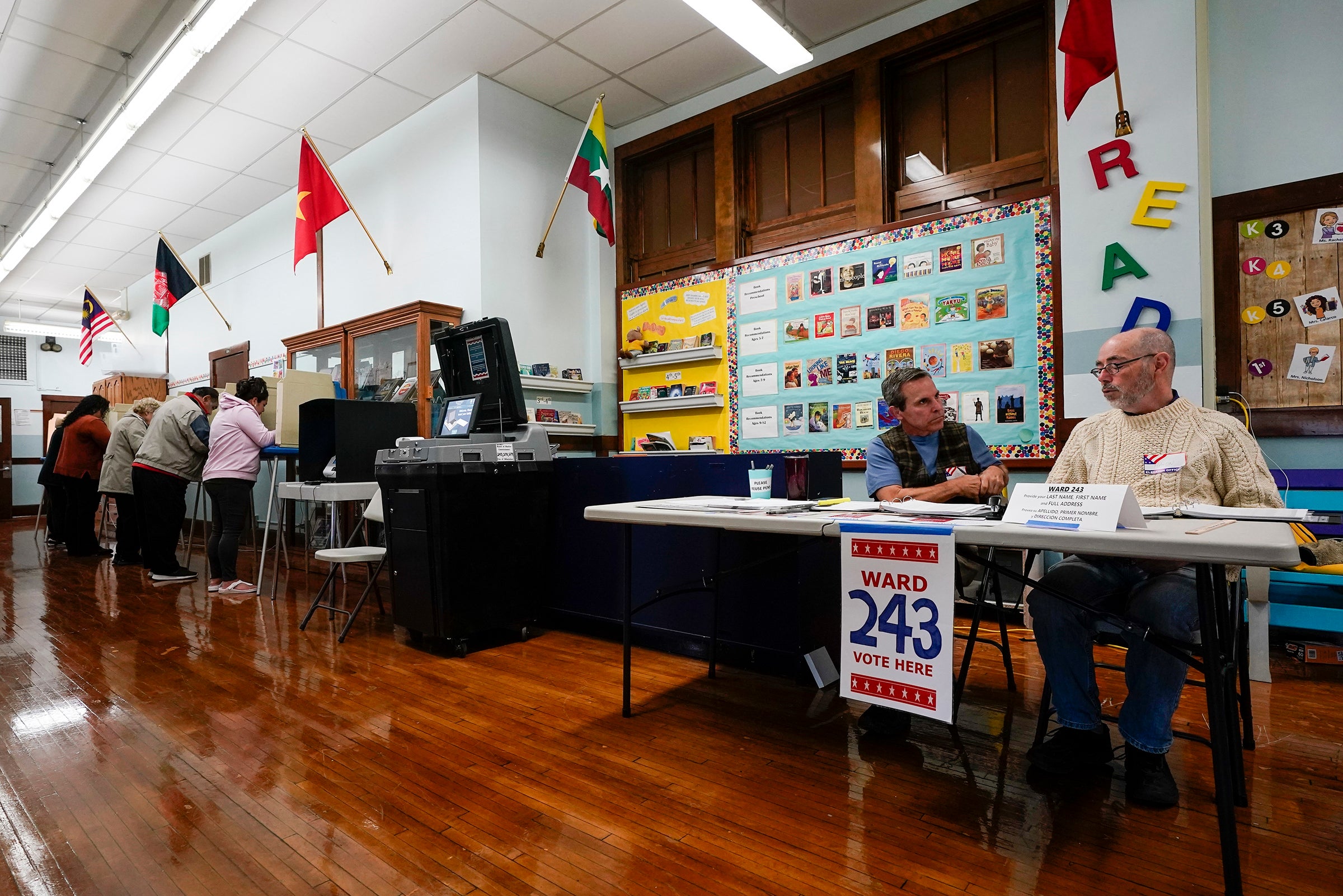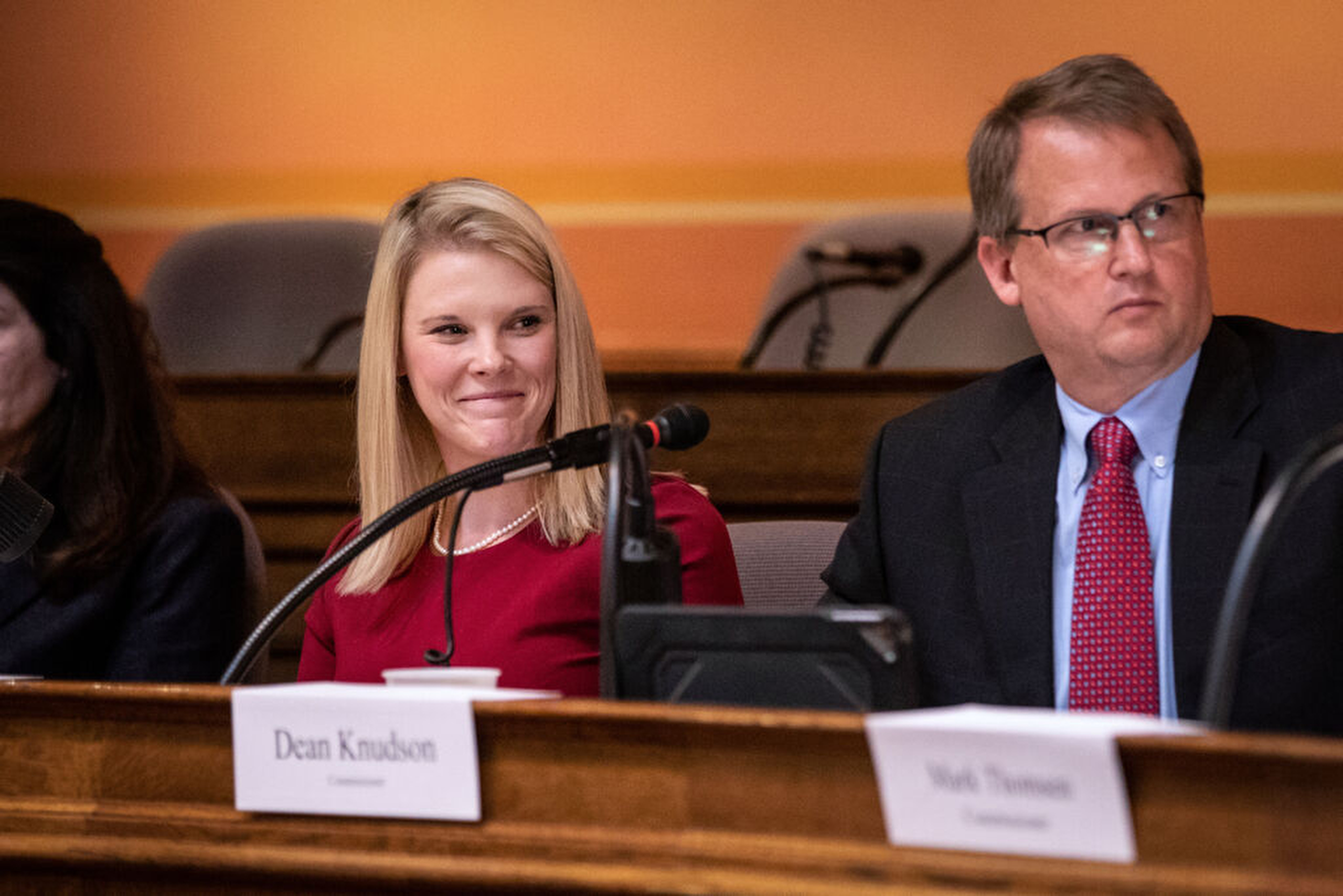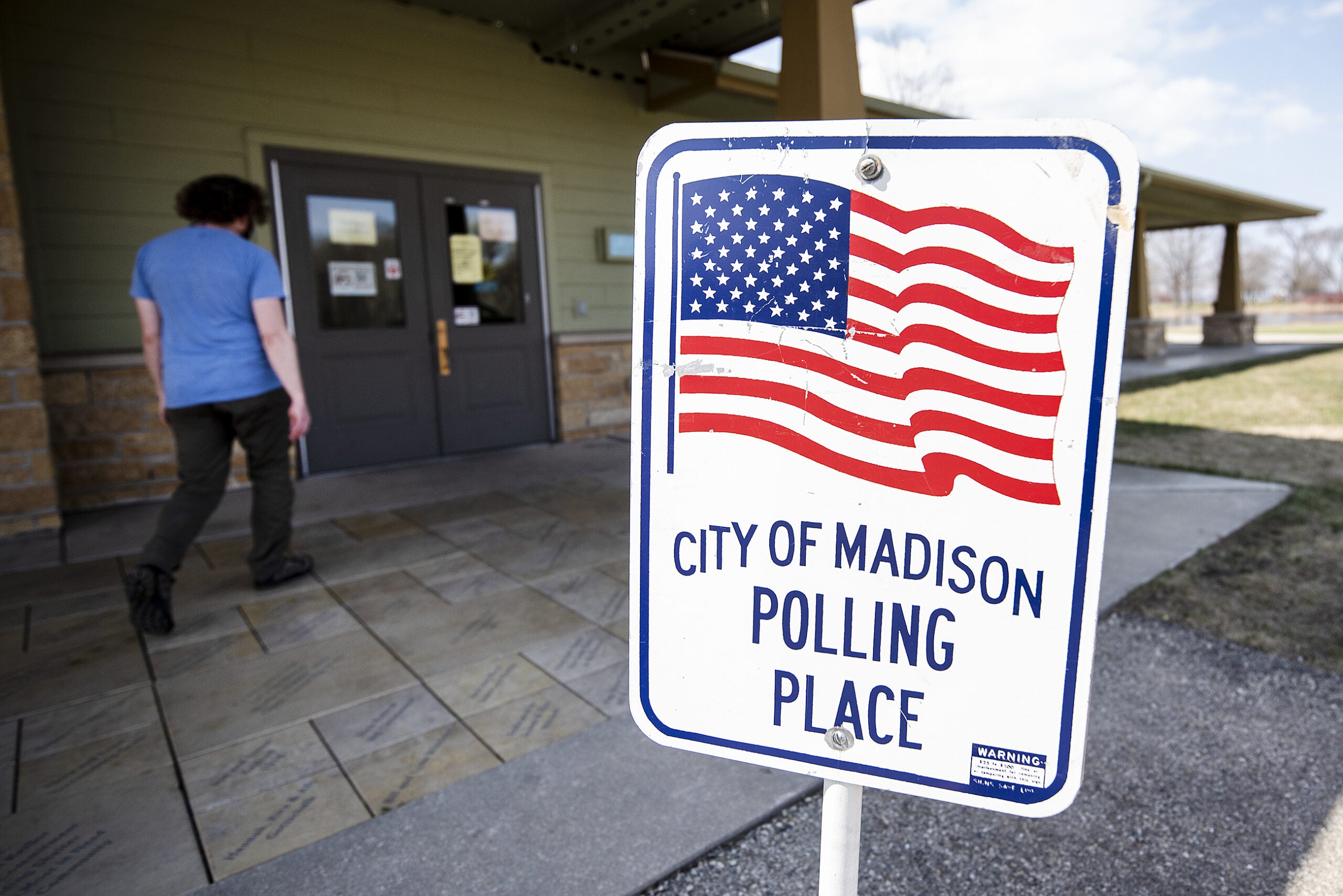Republican Tim Michels narrowly lost a race Tuesday to unseat Democratic Gov. Tony Evers. But some of Michels’ campaign promises could have lasting reverberations.
Among them: his call to eliminate the Wisconsin Elections Commission, a bipartisan body that oversees how elections are run. But, in a post-election interview with Wisconsin Public Radio’s “The Morning Show,” the state’s top elections administrator Meagan Wolfe told Wisconsinites they may want to think twice about replacing the Elections Commission.
Wolfe praised the bipartisan nature of the commission, and the fact that’s its required to host public meetings.
News with a little more humanity
WPR’s “Wisconsin Today” newsletter keeps you connected to the state you love without feeling overwhelmed. No paywall. No agenda. No corporate filter.
“Anytime someone contemplates changes to our structure, I think they need to consider the trade-offs that would be there,” Wolfe said in an interview that aired Thursday morning. “We do have this unique process where you can watch those decisions (get) made and those decisions are made in a bipartisan way.”
During a campaign stop in Middleton days before the midterm elections, Michels told reporters he wanted to replace the Elections Commission with something called the “Wisconsin Election Integrity Group,” though he didn’t say how members would be appointed.
In 2015, then-Republican Gov. Scott Walker signed a law creating the Elections Commission, which is made up of six Democrats and six Republicans. Walker and GOP lawmakers dissolved the state’s Government Accountability Board, which Republicans had accused of favoring Democrats.

Since then, the Elections Commission, which is required to have a 50-50 split between the two parties, has deadlocked on plenty of votes which would have set guidance for the local clerks that run elections.
Wolfe was appointed by commissioners in 2018 to serve as its administrator.
She also responded Thursday to questions about former Milwaukee Election Commission Kimberly Zapata, who now faces criminal charges after authorities say she fraudulently requested military absentee ballots that were sent to state Rep. Janel Brandtjen, R-Menomonee Falls.
Wolfe called Zapata’s actions a “real violation of trust” and a threat to public confidence.
Unlike other Wisconsinites, members of the military may request absentee ballots without registering to vote. Wolfe said she’d be open to working with state lawmakers to change that process, though she also asserted there are checks in place to flag and stop fraudulent requests.
“In this particular instance, this was an isolated incident by a single person that was willing to commit a crime and I think that’s really important to point out what they did here was commit a crime,” Wolfe said. “And I think that these actions — they’re caught swiftly, they’re detected swiftly, they have absolutely no impact on the election.”
Brandtjen is the one who first alerted law enforcement abbot the fraudulent ballots. Military voters have to provide a name, birthdate and residential address to request a ballot.
Wisconsin Elections Commission officials say there are safeguards in place to stop people from abusing the process, including postcards sent to voters before the Nov. 8 election that inform them if a mailing address requested for an absentee ballot was different from a residential address on file.
Wisconsin Public Radio, © Copyright 2025, Board of Regents of the University of Wisconsin System and Wisconsin Educational Communications Board.







